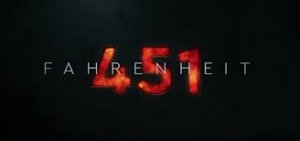Titre
Taliesin. The Taliesin Fellowship Publication. No.1-2 [All published]. The New Frontier. Broadacre City.
Auteur
[Architecture]. Wright, Frank Lloyd (1867-1959 (ed.)).
Éditeur
Prix
€ 950,00
Détails
Spring Green, Taliesin Fellowship, 1940, 1st ed., 2 issues, 33,(3); 38,(2) pag. (incl. wrappers), illustrations, set from the Futura in red and black, original uniform stapled decorated wrappers, quarto (22,5 x21,8 cm.).
Plus d'informations
= Rare complete set of the Taliesin Fellowship Publications, the Utopian ideology of Frank Lloyd Wright for Broadacre City. Both volumes wrappers slightly dust- or fingersoiled and some vague creasing from handling; first vol. with owner's entry on inside frontwrapper; 2nd vol. small pen doodle in lower corner frontwrapper. Like many progressive reformers, Wright was troubled by the human cost of industrialization under capitalism - monotonous work, exploitation, the widening gap between the rich and poor, and so forth and argued that the machine could solve such problems if used humanely. He imagined that the efficiencies of machine production could reduce the average workday by half freeing up large amounts of time for the citizens of Broadacre to pursue their own interests while still producing the goods necessary for modern life. Borrowing ideas on land value from Henry George, Wright makes land ownership a universal right in his utopia NO LANDLORD AND TENANT. George had published a groundbreaking, and bestselling, study on poverty and inequality in 1879 called Progress and Poverty, in which he argued that landowners and monopolists were able to accumulate disproportionately large amounts of wealth because they earned money by charging rent or interest to others, what he called the unearned increment, and not through their own productive labor. To minimize rent in Broadacre, every citizen was a property owner and obliged to use or improve her land, not hold it in reserve for speculation. Neither banks nor the government could threaten an individuals homestead. Owners could use it as their residence, but also as a place of business or to grow their own food, thus ensuring their economic independence. The security that land ownership conferred, Wright argued, solved the problems of unemployment and labor exploitation because subsistence was certain and thus workers were empowered to reject disagreeable labor. Wright also proposed to retool the monetary system and he saw in an early stage that it was vital to eliminate politics from government. Politicians dare not really lead, Wright argued, since they were more concerned about negotiating money miracles on behalf of interest groups that only maintained the status quo in order to get reelected. How can we address the widening gap between the rich and the poor? How can we reform government to better meet our collective goals? How can we overcome our differences to create fair and inclusive communities? In the 1930s, critics lambasted Broadacre as simultaneously communist, fascist, and socialist. Others seized upon its impossibility, as an urban plan or social organization. More recently, historians have pointed to the inherently unequal and racist presumptions underlying any system based on private property given its barriers to entry, now and in the 1930s. Wright himself admitted,
as for craft, state-craft is not my craft. Whatever its shortcomings, however, Broadacre is remarkable as a thought experiment. Wright attempted to grapple with the most challenging and intractable questions of his time, questions that linger today. We may disagree with his answers, but I would like to suggest that it is the questions, not the solutions, that make Wright of continued relevance to our own time. (paraphrased from: Jennifer Gray in 'Perspective' Frank Lloyd Wright Quarterly Magazine, Winter 2018).
- Tous les livres sont en état complet et normal, sauf indication contraire. De petites imperfections comme une page collée ou un nom sur la feuille ne sont pas toujours mentionnés
- Vous gérez directement cette commande avec Fahrenheit 451
- Après votre commande vous et Fahrenheit 451 recevrez une confirmation par e-mail. Dans l'e-mail que vous pouvez trouver, vous pouvez trouver le nom et l'adresse de Fahrenheit 451
- L'acheteur paie les frais de livraison, sauf accord contraire
- Fahrenheit 451 peut demander un prépaiement
- Boekwinkeltjes.nl essaie de rapprocher les acheteurs et les vendeurs. Boekwinkeltjes.nl n'est jamais impliqué dans un accord entre l'acheteur et le vendeur. Si vous avez un différend avec un ou plusieurs utilisateurs, vous devez le réparer vous-même. Vous indemnisez Boekwinkeltjes.nl de toute réclamation.

